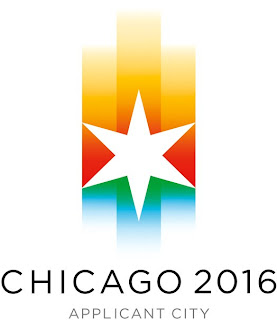Prequel #2: As I was driving home yesterday, I came up behind a new looking car bearing the license plate "WED IV 25". The plate took me a moment to decipher, and I now wish the woman driving it a happy anniversary. That is the conclusion of "True Stories from My Wednesday Commute".
Today, class, we will learn about Paul Cornell, the king of networking, who invented the commuter suburb in these parts.
Cornell's family had moved to Illinois, following the death of the Paul's father when the boy was age nine. Paul worked his way through school, passed the bar exam and moved to Chicago in 1847.
.
Chicago at this time was extremely walkable, with everything within a couple miles of the city center. Most people worked close to home, as the Dan Ryan, the Toyota Prius and the Howard Stern Morning Show had not yet been invented in 1850. It was around this time that an Illinois senator steered a friend to a hot real estate deal that would make money for everyone. Politics and the spoils of office had already been invented in 1850.
Paul Cornell had been rudely welcomed to Chicago. His life savings were stolen from him as he slept on the night he arrived in the city. A sympathetic lawyer provided Paul with a loan and got him a job. The lawyer's name was Stephen Douglas, as in Stephen Douglas, the Illinois Senator. The job was with the law firm of Skinner & Hoyne (as in Judge Skinner and Hoyne Avenue in the city).
Paulie worked hard, met a girl, got married. His new brother in law was John Evans, the man after whom the city of Evanston was named. Evans, along with a chap named Orrington Lunt (as in Orrington Street in Evanston and Lunt Avenue in Chicago) founded a school, Northwestern University, in his namesake town. John Evans, in turn, was related to George Kimbark (Kimbark Avenue, a north-south street that runs right into the University of Chicago), a real estate speculator and developer who would become the founder of Riverside, IL.
 Anyhoo, south of the city there was a 300 acre parcel with a "For Sale" sign in it. The parcel of land extended from what is today 51st Street down to 55th Street and from Lake Michigan to the Illinois Central Railroad tracks.
Anyhoo, south of the city there was a 300 acre parcel with a "For Sale" sign in it. The parcel of land extended from what is today 51st Street down to 55th Street and from Lake Michigan to the Illinois Central Railroad tracks.Cornell bought the land and traded 60 acres to the IC railroad in exchange for the IC constructing a depot at 53rd Street and setting up 6 stops a day in and out of Chicago.
The commuter suburb and commuter railway were born. Cornell named his new area Hyde Park after the London version.
Kimbark bought land just west of Cornell's land. Cornell's uncle bought other adjoining land. The Illinois legislature created Hyde Park Township out of all that. The lads all made just a wee bit of money by developing their land. It probably didn't hurt to have a pal who was a Senator.
Oh, and Paul Cornell, the king of networking in the pre-LinkedIn era, had a cousin named Ezra who kept himself pretty busy, too. Ezra founded Cornell University back east.
Paul Cornell got Cornell Avenue in Hyde Park, a couple of streets east of the school that set up shop in his town, the University of Chicago, on Kimbark, over by there.
A scant 150 or so years later, you may wish to ruminate on all these hooked up guys as you sit in traffic, or sit on the train, or contemplate starting your own suburb so you can get rich and famous.


 Take beach volleyball as an example. Why is beach volleyball an Olympic event? It's a nice passtime for the hardbodies who hang at the beach while the rest of us are working, and it has a professional tour for the devotees. But a world competition for Olympic medals, I don't get it.
Take beach volleyball as an example. Why is beach volleyball an Olympic event? It's a nice passtime for the hardbodies who hang at the beach while the rest of us are working, and it has a professional tour for the devotees. But a world competition for Olympic medals, I don't get it.